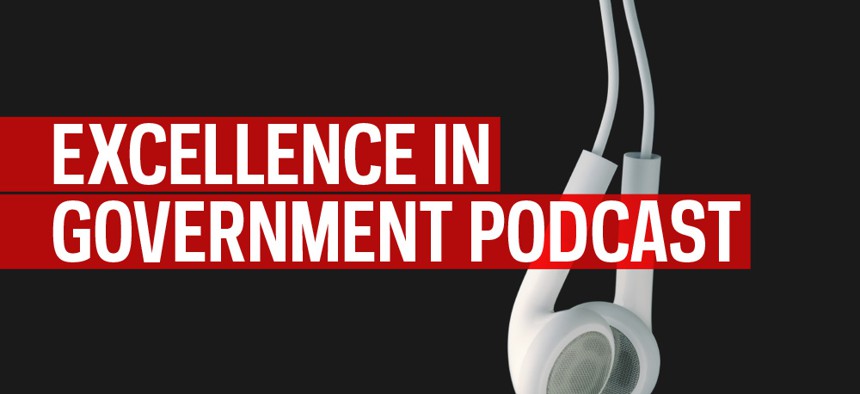Creating Your Own Economy With a Side Business
Financial expert Kimberly Palmer explains how to tap into your entrepreneurial side.
Listen to the story:
Download this episode | Subscribe on iTunes
The federal government shed 2,000 jobs in December, ending 2013 with a net loss of 79,000 positions, according to the latest figures from the Bureau of Labor Statistics. A 2012 survey found that nearly 30 percent of the labor force is worried about being laid off and 40 percent of workers fear a reduction in benefits.
Are side businesses the solution to an uncertain economy? In her new book, The Economy of You, personal finance expert Kimberly Palmer suggests “we can turn the new economy from a frustrating wasteland of lost opportunities into a thriving incubator for our true selves.”
The former Government Executive reporter is senior money editor and Alpha Consumer blogger at U.S. News & World Report. The Economy of You, her second book, examines stories from people supplementing or replacing their income by creating side businesses or doing freelance work.
Palmer herself is successful with her side businesses. In addition to writing books and freelancing, her first side business was Palmer’s Planners, an Etsy shop featuring a line of planners based around life events. Her story is one of creating a side business based on financial uncertainty, personal passion and life events. In her book she says the experience was “thrilling, empowering and hard.”
But failure is an important part of creating a side business. Palmer says some trial and error is necessary, but an adaptable mind will help a lot. “There’s going to be some failure along the way. It’s inevitable,” she says. “You might have to rethink things, tweak things, make changes. But you can find something that will work.”
Side businesses are usually passion projects, Palmer says. But striking a balance between necessity and following your dream is important when creating a side business. She notes that a lot of people make the move for financial reasons, but end up gaining much more.
“As they launch their business, they realize it’s about so much more than the money,” Palmer says. “It becomes something that’s so satisfying that they know whatever it is they’re creating is helping other people.”
Technology has played a huge part in the boom of side businesses. With cheap or free Web commerce applications, entrepreneurs can enter the marketplace with just a computer and a business idea. “You do not need to invent the wheel, you don’t even need to know how to build a website or take credit cards,” Palmer says. “All that can be done for you.”
For government workers, the regulations on freelancing and moonlighting are vague. Most agencies don’t have a lot of rules in place, so feds need to be diligent when creating side businesses, Palmer warns.
“It’s so important to protect your full-time job by abiding by the ethical guidelines and rules that govern your agency,” she says. “And there are some rules that are spelled out by the Office of Government Ethics.”
Creating a side business can be an important part of achieving financial independence. In addition to aiding entrepreneurship, side businesses can diversify one’s income stream. With layoffs always seemingly in the immediate future, Palmer says in her book, “We can’t pretend that our employers have our best interests in mind.”








